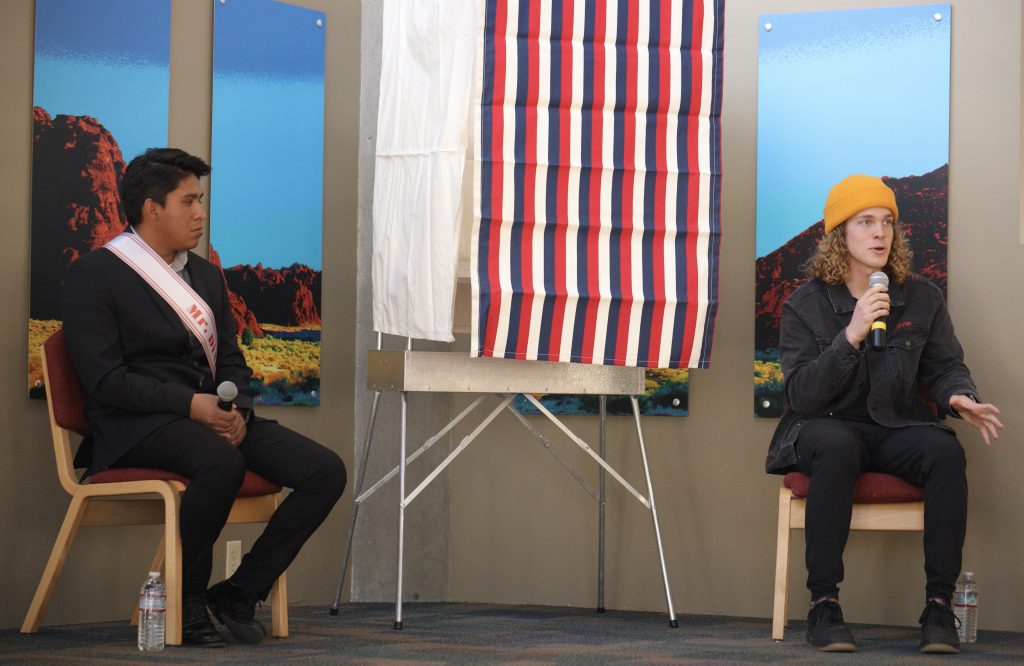Money is often a problem with college students, and not many people are willing to use their own money for a school project.
The Dixie State University student senate allocates certain funds to students with a project in mind.
“We have bylaws that state what can be and what can’t be funded,” said Gregory J. Layton, a senior English major from Cottonwood Heights. “So (the students) make a bill and present it, and then (the senate) votes on it.”
For Bethany Thomas, a senior history major from Inland Empire, Calif., the opportunity to do research for her capstone project at Brigham Young University was realized.
Thomas said the few seniors doing their capstone project on the Cold War have done a lot of research at the DSU library but needed more information. Thomas took the project to the student senate and was able to visit BYU for more research. The chance to go to BYU ended up being profitable.
“It was a really good experience, and we found some things up there that we wouldn’t have normally found,” Thomas said.
The student senate has funded an average of $14,518.21 each year for the past four years. That money has gone to many different programs on campus, such as the Reserve Officers’ Training Corps, the symphony orchestra, psychology research and many more.
Layton said the process is simple. A student or group of students can approach student government and create a bill or request of funds.
Each department on campus has a senator who is in charge of helping a group of students get the necessary funds. Oftentimes, the senator will also help write the bill.
Christine Arlotti, a senior English major from Los Angeles, said she was able to attend the meeting because of the help from her senator.
“I went to the meeting and they all sit in a square and go through the motions of what’s next,” Arlotti said.
Arlotti attended a two-day undergraduate research in grant writing. She said it was a valuable experience in many different ways.
“It was informative,” Arlotti said. “One thing that was really good was that I met some other people in the area that do grant writing also.”
She even received the chance to help another person out at the meeting.
“One of them was a director of environmental studies for Dixie National Forest,” Arlotti said. “I was able to hook her up with my supervisor of undergraduate research, Dr. Armstrong.”
For students who have an upcoming project, a meeting is held every Friday at 4 p.m. The meeting is a chance to present the project trying to be funded.
“I would suggest that they would come to the meeting,” Layton said. “[I’m] not saying that if you have [more] people there, then it raises the chance of your project. It is good to hear what they have to say and see who they are. It (also) lets them see how the process is done.”
Thomas got the opportunity to see how the meeting is performed before her trip.
“I was the one that went to the congress meeting and explained what our trip was for,” Thomas said. “The voting was the week after that, and it all went really smooth.”
Layton said there is a form online on orgsync.com that asks for general information. The information will be relayed to the correct senator and the senator will then get in contact with the students.
“It was great to find that that resource was available to us,” Thomas said.


